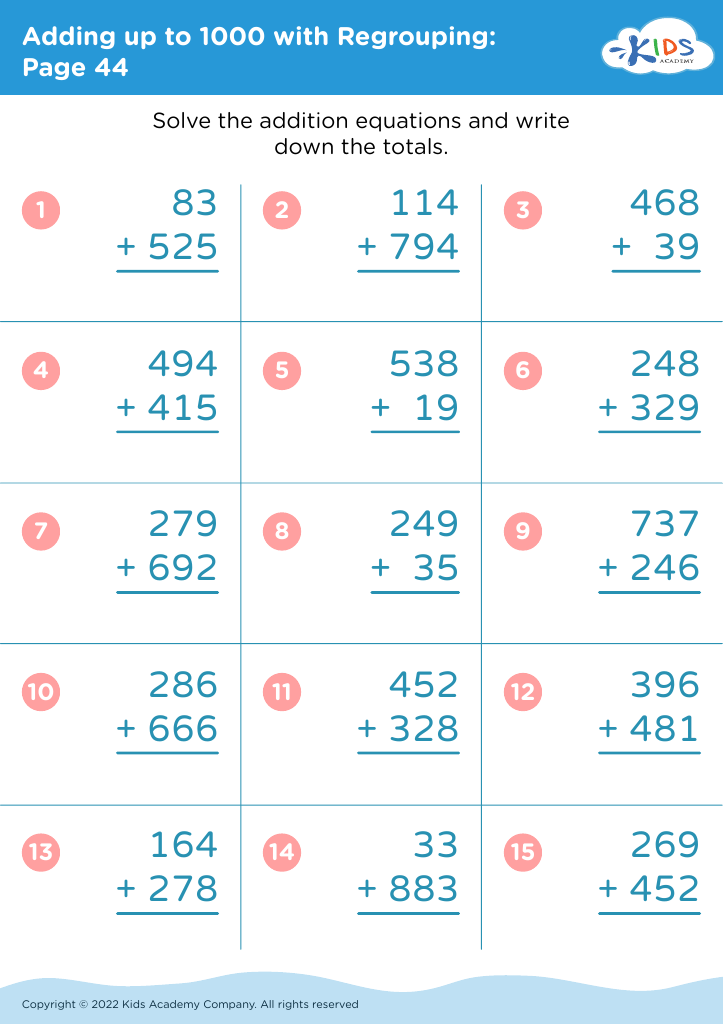Improve counting skills Adding up to 1000 with Regrouping Worksheets for Ages 4-8
3 filtered results
-
From - To
Enhance your child's counting skills with our engaging Regrouping Worksheets designed for ages 4-8! These worksheets make learning to add up to 1000 a fun and interactive experience. Through a variety of exercises, children will practice and master regrouping strategies while developing essential math skills. Our resources are designed to promote confidence and competence in young learners, ensuring they grasp fundamental concepts in addition. With colorful illustrations and engaging activities, kids will enjoy the process of learning mathematics. Explore our collection of worksheets to foster a love for counting, support their academic growth, and prepare them for future math challenges!
Improving counting skills and mastering addition with regrouping for children aged 4-8 is crucial for their overall mathematical development. At this age, foundational skills are being established that will support more complex mathematical concepts in the future. Proficiency in counting and addition builds a solid understanding of numbers, fostering confidence in young learners.
When children engage with adding up to 1000 through regrouping, they develop critical problem-solving abilities. Regrouping teaches them how to manage larger numbers, reinforces the concept of place value, and enhances their cognitive flexibility. These skills are not only essential for mathematics but also cultivate analytical thinking that can be applied across various subjects.
Additionally, improved counting skills encourage children to engage in everyday activities involving math, such as shopping or cooking, making learning relevant and practical. For parents and teachers, focusing on these skills promotes a positive attitude toward math, alleviating anxiety as children encounter more challenging concepts. Moreover, a strong mathematical foundation can lead to greater academic success and open up opportunities for STEM-related fields in the future. Therefore, investing time and resources in enhancing counting skills and addition with regrouping is invaluable for nurturing well-rounded, capable students.













